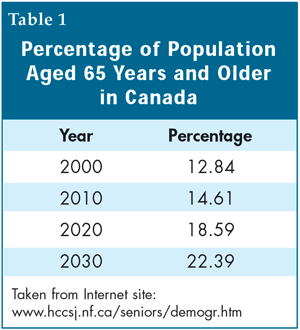J. George Fodor, MD, PhD, FRCPC, FAHA, Professor of Medicine, Head of Research, University of Ottawa Heart Institute Prevention and Rehabilitation Centre, Ottawa, ON.
It is worthwhile to review the issue of hypertension in the elderly not only because it will become an ever-increasing problem with our aging population, but also because of the robust database currently at our disposal concerning improved risk assessment and efficacious therapy.
 The Epidemiology
The Epidemiology
Generally, the elderly are considered those above 65 years of age. Dealing with hypertension in this age group, we quickly realize that this disease is a major epidemic with far-reaching consequences for both the health status of this segment of the population as well as our health care system.
The Canadian Heart Health Survey ascertained that among people in the age group 65-74 years, 56% of males and 58% of females were hypertensive.1 This survey defined hypertension as systolic blood pressure (SBP) > 140mmHg or diastolic blood pressure (DBP) > 90mmHg, or current treatment with a prescription antihypertension medication or non-pharmacological treatment of blood pressure (weight control or sodium/salt restriction). The problem of hypertension in the elderly will continue to increase steadily in importance.

 The Epidemiology
The Epidemiology